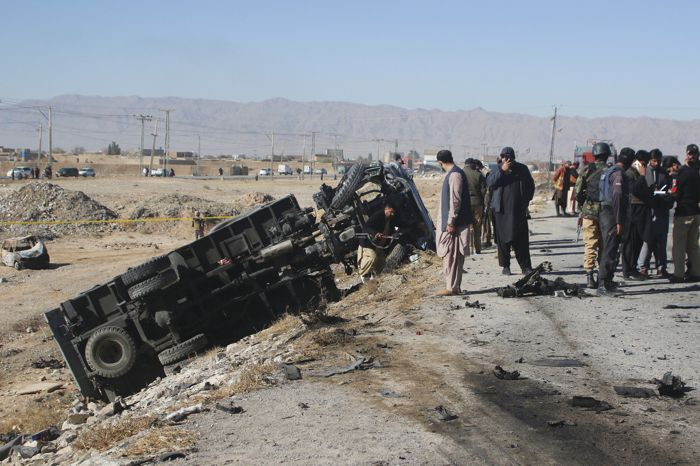Role of establishment in troubled Pakistan

RK Kaushik
Pakistan became the first islamic state to be born after decolonisation started in the post Second World War period.
In the 75 years long history of Pakistan there have been only two periods when the Establishment played second fiddle to civilian leadership .The first time was from August 14, 1947 to October 21, 1951, the day prime minister Liaquat Ali Khan was assassinated .The second spell came on December 20, 1971, when Zuffiqar Ali Bhutto took over and lasted till July 5, 1977, when he was overthrown in a millitary takeover.
During the rest of its journey as a nation state, Pakistan has had the conspicuous and humongous presence of the all powerful establishment controlling foreign affairs, defence, internal security and nuclear affairs, and not allowing political leaders to interface in these matters.
The reason why democracy became so fragile and the Establishment became so strong is not far to seek. The structural dynamics of the Muslim League at the time of Independence answer that. It is pertinent to mention that even in 1937 there was only one member of the Muslim League in the 175-member, pre-partition Punjab Assembly in Lahore. Muslim League had no presence in Balochistan and no member in NWFP Assembly. It had only one member in Sindh Assembly. It was only in 1945 and 1946 that Muslim League started having leaders and workers from the Unionist Party and other groups as its members in Punjab and from other Parties in NWFP and Sindh
After Independence the Establishment never allowed independent-minded leaders to grow and the moment a leader tried to encroach upon it’s domain, he was made a horrible example for others to see. The Establishment brought rich landlords, wadheras, businessmen, etc. into politics so that they would be obsequious partners in power game.
Also in Pakistan, there exists a structural and insitutional divide between elements that want to have power. This is manifest in every aspect notably in society, economy and most specifically in politics. The tension between theses forces maintains the status quo in the country and any fractures in this precarious balance always result in social clashes and brutallities that hark back to its repressive history. It is generally overlooked that institutional weaknesses have adverse impacts on the economy, national policies and social development of society.
It is a fact that exceptional personal moral standards ought to be a perequisite for holding high public office, but in a third world country like Pakistan most of the leaders have thin morality, nay intergrity, with smudged financial hygiene. Sooner or later many such unscrupulous leaders find themselves in the quagmire of corruption charges with frugal arguments to defend them, leading to instability and precariousness in the system.
The Establishment is not going to wither away and seemingly there is no leader likely to come in the near future who can take up cudgels with it. So, the world and especially India, has to face the unpleasant reality that a nuclear-armed Pakistani Establishment with an everest of animosity against India would rule by proxy in years to come. The takeover of the new Army Chief, General Asim Munir, will not change this settled paradigm.
When weak civilan leaders lead a nation state as in Paskistan, then administration becomes non performing and as Italian philosopher Giorgio Agam Ben said, “Politics melts into the management of a permanent disorder.” Then politicians and bureaucracy just pass time without making seminal changes or in any way showing sagacity in decisions and ameliorating the nagging and obnoxious problems faced by the populace at large for survival leading to instability in the country.
The post Zia-ul-Haq phase clearly shows the working of weak political leaders, be it Benazir, Nawaz, Zardari, Imran or now Shahbaz. So with the retirement of General Bajwa and taking over of General Asim Munir, no major changes are expected. The Establishment (Army and ISI) is going to rule Pakistan with puny political leaders becoming a facade of Democracy. The instability would countine for times to come.
